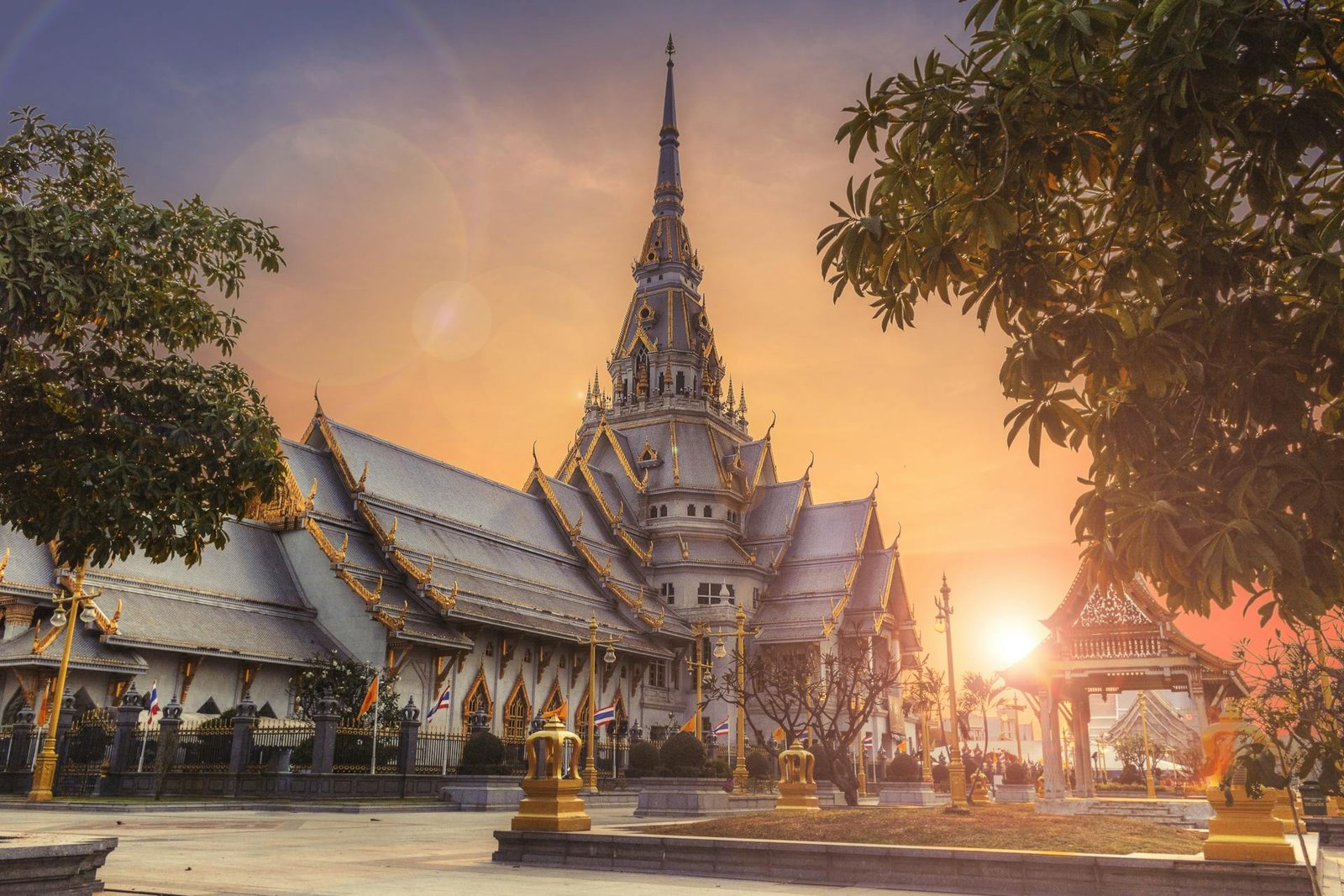Thailand has long been a dream destination for travelers and expats. With its stunning beaches, vibrant culture, and affordable living, it’s no wonder digital nomads flock to the “Land of Smiles.” To keep up with the growing remote work trend, Thailand has introduced new long-term visa options. Two prominent ones are the Destination Thailand Visa (DTV) and the Long-Term Resident (LTR) Visa.
Both visas offer extended stays. However, they cater to very different types of foreigners. Choosing the right one depends on your income, your work, and your plans for staying in Thailand. This guide will compare the DTV and LTR visas in detail for 2025. We’ll help you decide which one is the best fit for your nomadic journey.
Understanding the Destination Thailand Visa (DTV)
The DTV visa is Thailand’s newest offering. It was designed with remote workers, freelancers, and “workcationers” in mind. It also aims to attract those interested in Thai cultural activities.
Key Features of the DTV Visa
- Purpose: Primarily for digital nomads, remote workers, freelancers, and individuals engaging in “Thai Soft Power” activities (e.g., Muay Thai, Thai cooking classes, medical treatments, festivals).
- Validity: Valid for 5 years with multiple entries.
- Stay Duration: Allows a stay of up to 180 days per entry. This can be extended once for another 180 days at immigration, totaling up to 360 days per visit.
- Work Authorization: This visa does not provide a work permit for employment within Thailand. It is for income earned from outside Thailand.
- Financial Requirement: You need to show proof of at least 500,000 THB (around $14,500 USD) in a bank account. This demonstrates you can support yourself.
- Age Requirement: Applicants must be at least 20 years old.
- Dependents: Spouses and children (under 20) can also apply for the DTV visa. There is no stated limit on the number of dependents.
- Application Process: You can apply online through the Thai e-Visa portal or at a Thai Embassy/Consulate outside Thailand. Processing often takes around 15-20 working days.
- Cost: The application fee is generally around 10,000 THB (approx. $280 USD), but it can vary by embassy.
Who is the DTV Visa Best For?
The DTV visa is ideal for:
- True Digital Nomads: If your income comes entirely from outside Thailand and you don’t plan to work for a Thai company.
- Freelancers & Remote Workers: Those with a portfolio of clients or a remote contract from a foreign employer.
- Long-Term Travelers: If you want to spend a significant amount of time in Thailand (up to 360 days per year) without frequent visa runs or needing to leave the country every 60-90 days.
- Cultural Enthusiasts: Individuals looking to immerse themselves in Thai culture through classes, sports, or wellness programs while working remotely.
- Budget-Conscious Nomads: It has a much lower financial requirement compared to the LTR visa.
- Families: The inclusion of dependents makes it suitable for families who want to travel and live together.
- Those Avoiding Thai Tax Residency: If you manage your stays to be less than 180 days in a calendar year, you might avoid becoming a Thai tax resident on worldwide income.
Understanding the Long-Term Resident (LTR) Visa
The LTR visa is a more premium and comprehensive visa. It aims to attract “high-potential” foreigners. This includes wealthy global citizens, wealthy pensioners, highly-skilled professionals, and “work-from-Thailand” professionals. It focuses on boosting the Thai economy by attracting talent and investment.You can explore more visa options for digital nomads in various countries through our Digital Nomad Country Wise Visa Guides.
Key Features of the LTR Visa
The LTR visa is split into four categories:
- Wealthy Global Citizen:
- Assets: At least $1 million USD in assets.
- Income: Minimum $80,000 USD/year personal income for the past two years.
- Investment: At least $500,000 USD investment in Thai government bonds, Thai companies, or Thai property.
- Wealthy Pensioner:
- Age: 50 years or older.
- Income: Minimum $80,000 USD/year pension or stable income. If income is between $40,000-$80,000, an additional investment of $250,000 USD in Thai assets is required.
- Work-from-Thailand Professional:
- Income: Minimum $80,000 USD/year personal income for the past two years. If income is between $40,000-$80,000, you need a Master’s degree or above, intellectual property, or Series A funding.
- Employer: Must work for a well-established foreign company (publicly listed or private company with at least $50 million USD combined revenue in the last three years).
- Experience: At least 5 years of work experience in relevant fields in the past 10 years.
- Highly-Skilled Professional:
- Income: Minimum $80,000 USD/year personal income for the past two years. If income is between $40,000-$80,000, you need a Master’s degree or above in science/technology or special expertise. No minimum income if working for a Thai government agency.
- Employer: Must work in targeted industries for businesses, higher education, research, or Thai government agencies.
- Experience: At least 5 years of experience in targeted industries (unless PhD holder or working for Thai government).
General LTR Visa Benefits for All Categories
- Validity: Valid for 10 years, renewable.
- Stay Duration: No specific limit per entry. It allows for continuous residence within its validity.
- Work Permit: Includes a digital work permit, allowing legal employment in Thailand.
- Tax Benefits: Highly-skilled professionals may benefit from a reduced personal income tax rate of 17% on employment income. All LTR holders can get a tax exemption on overseas income brought into Thailand if they are not tax residents.
- Immigration Perks: Fast-track service at international airports. Annual reporting to immigration instead of every 90 days.
- Dependents: Spouses and children (under 20) can also qualify for the LTR visa. As of 2025, there is no limit on the number of dependents.
- Application Process: Involves an online application for qualification endorsement through the BOI (Board of Investment) website. After approval, you apply for the visa at an embassy/consulate or immigration office in Thailand. Then you apply for the digital work permit.
- Cost: The visa fee is 50,000 THB (approx. $1,500 USD) for 10 years.
Who is the LTR Visa Best For?
The LTR visa is designed for:
- High-Income Earners: If you consistently earn above $80,000 USD per year.
- Investors: Those looking to invest a significant amount in Thailand.
- Retirees with Assets: If you are over 50 with a stable income or substantial investments.
- Professionals Working for Large Companies: Especially those whose foreign employers meet the high revenue requirements.
- Those Seeking a Thai Work Permit: If you want the legal ability to work for Thai companies or on projects within Thailand.
- Long-Term Residents: If you plan to live in Thailand for a decade or more.
- Families with More Members: The removal of the dependent limit makes it more flexible for larger families.
- Individuals Valuing Perks: Fast-track airport service and simplified immigration reporting are attractive benefits.
DTV vs. LTR: A Head-to-Head Comparison
Let’s look at the main differences side-by-side to help you decide.
| Feature | Destination Thailand Visa (DTV) | Long-Term Resident (LTR) Visa |
|---|---|---|
| Primary Target | Digital Nomads, Remote Workers, Freelancers, Cultural Participants | Wealthy Global Citizens, Pensioners, “Work-from-Thailand” Professionals, Highly-Skilled Professionals |
| Validity | 5 years, multiple entry | 10 years, renewable, multiple entry |
| Stay Per Entry | Up to 180 days, extendable once for another 180 days (360 days total) | Continuous stay within validity (no per-entry limit) |
| Work Permit | No (income from outside Thailand) | Yes (includes digital work permit for work within Thailand) |
| Minimum Income | No explicit income, but proof of 500,000 THB savings | $80,000 USD/year (or $40,000 with other qualifications/investments) |
| Investment Req. | None | Required for “Wealthy Global Citizen” & “Wealthy Pensioner” categories; can reduce income req. for others |
| Age Requirement | 20+ years old | Varies by category (e.g., 50+ for Pensioners) |
| Health Insurance | Not explicitly required in application, but highly recommended for all travelers. | Required ($50,000 USD coverage or $100,000 USD deposit) |
| Application Process | Online via e-Visa portal / Embassy (from outside Thailand) | Online endorsement (BOI) then visa at Embassy/Immigration (from outside or inside Thailand) |
| Application Fee | Approx. 10,000 THB (~$280 USD) | 50,000 THB (~$1,500 USD) for 10 years |
| Immigration Perks | Standard | Fast-track airports, 1-year reporting (vs. 90 days), no re-entry permit needed |
| Tax Benefits | Standard Thai tax rules (tax resident if >180 days/year, worldwide income taxed) | Possible 17% flat tax for Highly-Skilled Pros; potential exemption for overseas income not remitted |
| Dependents | Spouses & children (under 20) included, no limit | Spouses & children (under 20) included, no limit |
Which Visa is Right for You?
The choice between the DTV and LTR visa depends on your specific situation and long-term goals.
Choose the DTV Visa If You Are:
- A “Pure” Digital Nomad/Freelancer: Your work is fully remote, and your clients are outside Thailand. You don’t need a Thai work permit.
- Budget-Conscious: You don’t meet the high-income or investment requirements of the LTR visa, but you have sufficient savings to support yourself.
- Looking for Extended Stays (but not permanent residence): You want to stay up to a year at a time, with the flexibility to leave and return.
- Interested in “Workcations”: You plan to combine remote work with exploring Thai culture, learning Muay Thai, or enjoying wellness retreats.
- Prefer a Simpler Application: The DTV process is generally more straightforward than the LTR.
Choose the LTR Visa If You Are:
- A High-Income Earner or Investor: You meet the financial thresholds and are looking for a premium long-term stay.
- Seeking to Work for Thai Companies: The LTR is the only one of these two that grants a work permit for local employment.
- Wanting Maximum Stability and Perks: You desire a 10-year visa, airport fast-tracking, and simplified immigration reporting.
- A Highly-Skilled Professional: You have specific expertise and your employer (foreign or Thai) meets the LTR requirements, potentially benefiting from tax incentives.
- A Wealthy Retiree: You are over 50 with significant income or investments and want a comfortable long-term retirement in Thailand.
- Planning a Very Long-Term Stay: You envision making Thailand your home for a decade or more and want the most comprehensive visa option.
Important Considerations for Both Visas
No matter which visa you choose, remember these points:
- Tax Implications: Staying in Thailand for more than 180 days in a calendar year generally makes you a Thai tax resident. This means your worldwide income might be subject to Thai taxation. Consult with a tax professional specializing in international taxation.
- Health Insurance: While only LTR explicitly requires it, comprehensive health insurance is crucial for any long-term stay in a foreign country. Medical emergencies can be very expensive.
- Documentation: Both visas require careful preparation of documents. Ensure all your paperwork is correct, translated (if needed), and authenticated as per the specific requirements of the Thai embassy or BOI.
- Visa Conditions: Always respect the conditions of your visa. Overstaying or violating terms can lead to fines, deportation, or bans from future entry.
Final Thoughts: Your Thai Adventure Awaits!
Thailand offers excellent options for digital nomads and long-term residents in 2025. The DTV visa provides flexibility and a more accessible path for remote workers and cultural explorers. The LTR visa, on the other hand, is a premium offering for high-net-worth individuals and skilled professionals seeking a more permanent and privileged residency.
Carefully consider your financial situation, work type, and how long you plan to stay. This will help you make the best choice. With the right visa, you can enjoy all that Thailand has to offer while maintaining your remote career.







